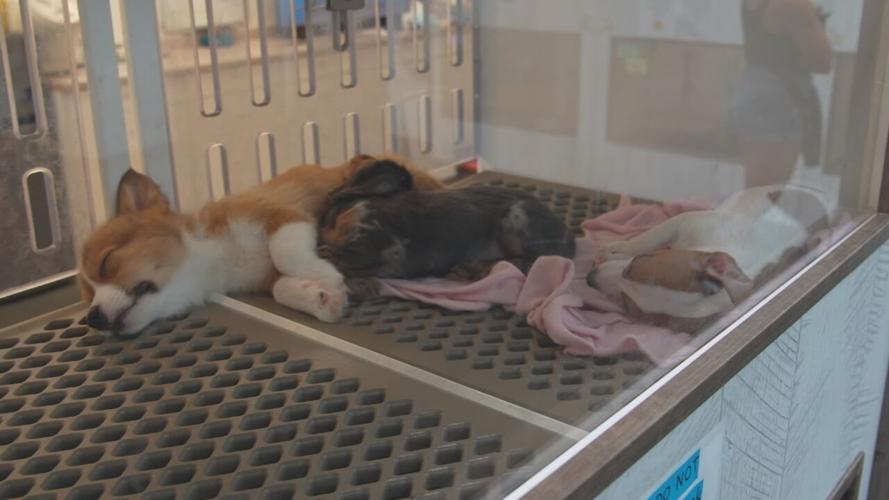LOUISVILLE, Ky. (WDRB) -- Louisville retail pet stores soon won't be able to continue selling dogs or cats unless they get them from somewhere else. Metro Council approved an ordinance Thursday night that bans such stores from selling dogs and cats, targeting those that operate as puppy or kitten mills.
The legislation was inspired — at least in part — by a WDRB News investigation into Puppygram, a shop on Hurstbourne Parkway that sells purebred puppies and pet supplies. Several dog owners brought home puppies that soon developed serious health issues. Many began to then question the health records they were given by Puppygram.
The investigation was mentioned several times as animal advocates pushed councilmembers to pass the ordinance. They believe it will reduce the number of puppy and kitten mills, where operators value profit over an animal's health.
One example came from Chelsea, a Louisville woman who took out a $2,700 loan earlier this year to buy Louie from Puppygram. Nine days after she adopted him, her vet diagnosed Louie with a parasite called Giardia.

Puppygram in Louisville. (WDRB Photo)
"This is a huge, huge win for animals for animal welfare folks," Todd Blevins, Kentucky state director for the Humane Society of the United States, said of Metro Council's approved ordinance.
Blevins, who helped write the ordinance, said the goal all along was to keep dogs from puppy mills out of Louisville.
"This ordinance will make not only the lives of a lot of puppies better ... but it'll actually help a lot of dogs that are trapped in these puppy mills," he said.
Louisville Metro Animal Services has gotten nine complaints about Puppygram since it opened in April 2022, but none of them resulted in violations. The Humane Society of the United States said more than 400 communities nationwide have passed laws to ban the retail sale of dogs and cats, including in Elizabethtown and Radcliff.
While not specifically speaking to practices at Puppygram, Blevins believes, in general, for-profit pet stores rely on "high-volume breeders" to supply puppies. He said a recent nationwide study showed, out of 8,000 puppy-buyer complaints, more than 60% involved a sick puppy.
Once the law goes into effect, if a pet store doesn't switch to selling dogs from a rescue organization rather than a breeder, it will pay the price. Fines range from $500 to $2,500, and the business could even lose its license.
More than 475 other cities nationwide have passed similar legislation. In 2012, the average USDA licensed puppy mill had 87 breeding dogs. By 2022, that number went down to 57.
"(Cities) all over the country have passed these kinds of laws because they work," he said.
Related Stories:
- Louisville Metro Council committee considering ordinance to ban pet stores from selling dogs, cats
- Despite customers' complaints and experts' concerns, Louisville pet store defends its adoption process
Copyright 2023 WDRB Media. All Rights Reserved.














